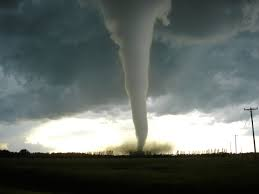Does CERCLA’s “Act Of God” Defense Apply In Climate Change Litigation
By admin on May 11, 2014
 In a decision issued on May 2, 2014, the Second Circuit held, in Cedar & Washington Assocs. LLC v. Port Auth. of N.Y. & N.J, 2074 BL 123476,2d Cir., No. 10- 4197, that the "act of war" affirmative defense relieved World Trade Center owners and lessees and airlines of Superfund liability for dust that infiltrated a building a block away after the collapse of the Twin Towers on 9/11.
In a decision issued on May 2, 2014, the Second Circuit held, in Cedar & Washington Assocs. LLC v. Port Auth. of N.Y. & N.J, 2074 BL 123476,2d Cir., No. 10- 4197, that the "act of war" affirmative defense relieved World Trade Center owners and lessees and airlines of Superfund liability for dust that infiltrated a building a block away after the collapse of the Twin Towers on 9/11.
The Second Circuit held that CERCLA was "not intended to create liability for the dispersal of debris and wreckage from a catastrophe that was indistinguishable from military attack in purpose, scale, means, and effect"
Dicta in the Second Circuit’s ruling may have implications for environmental claims relating to climate change? With all of the pollution caused by storm events, which seems to be increasing year by year, will this decision provide a defense to a chemical manufacturer, whose product was released into a waterway because of a hurricane? In its ruling, the court analogized 9/11, an act of war, to a tornado, an act of God.
CERCLA provides three defenses to strict liability for releases of hazardous substances. The potentially responsible party (PRP) must prove that the release was "caused solely" by (1) an act of God, (2) an act of war, or (3) an act of a third party.
 In exonerating the 9/11 defendants on the basis of the "act or war" defense, the court determined that the attacks were the "sole cause" of the alleged release, comparing the situation to the application of CERCLA’s "act of God" affirmative defense to a tornado. In her article in the Bloomberg BNA Toxics Law Reporter on May 8, 2014 (29 TXLR 407) titled "Superfund Suit Against WTC Parties Fails; Could Impact Claims Related to Climate Change", Perry Cooper examines language in the Second Circuit’s decision that may be potentially useful in establishing an "act of God" defense in climate change litigation.
In exonerating the 9/11 defendants on the basis of the "act or war" defense, the court determined that the attacks were the "sole cause" of the alleged release, comparing the situation to the application of CERCLA’s "act of God" affirmative defense to a tornado. In her article in the Bloomberg BNA Toxics Law Reporter on May 8, 2014 (29 TXLR 407) titled "Superfund Suit Against WTC Parties Fails; Could Impact Claims Related to Climate Change", Perry Cooper examines language in the Second Circuit’s decision that may be potentially useful in establishing an "act of God" defense in climate change litigation.
"It would be absurd to impose CERCLA liability on the owners of property that is demolished and dispersed by a tornado", the court said. "A tornado, which scatters dust and all else, is the ‘sole cause’ of the environmental damage left in its wake notwithstanding that the owners of flying buildings did not abate asbestos, or that farmers may have added chemicals to the soil that was picked up and scattered."
Hopefully, no CERCLA trial court will ever be asked to evaluate whether, in the wake of a terrorist attack that results in the release of hazardous substances, a defendant can avail itself of the "act of war" defense. However, it is likely that Cedar & Washington Assocs LLC will be cited for the proposition that releases occasioned by severe unforeseeable storm events should be considered acts of God.
